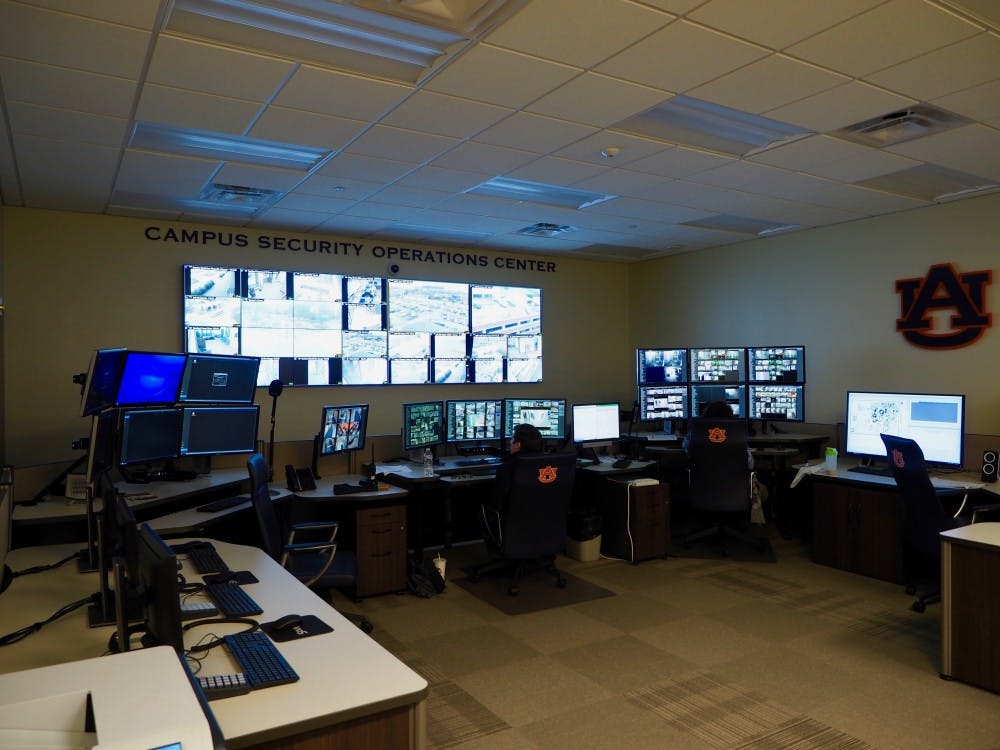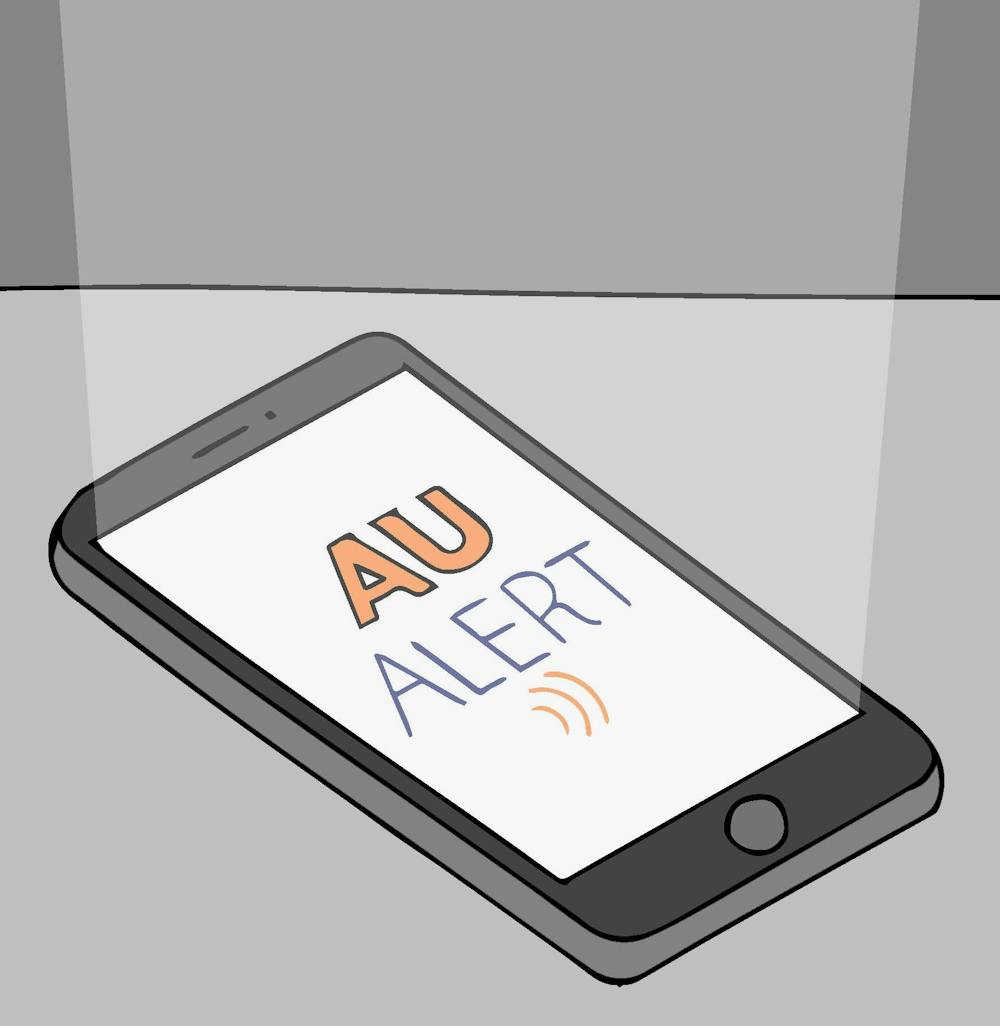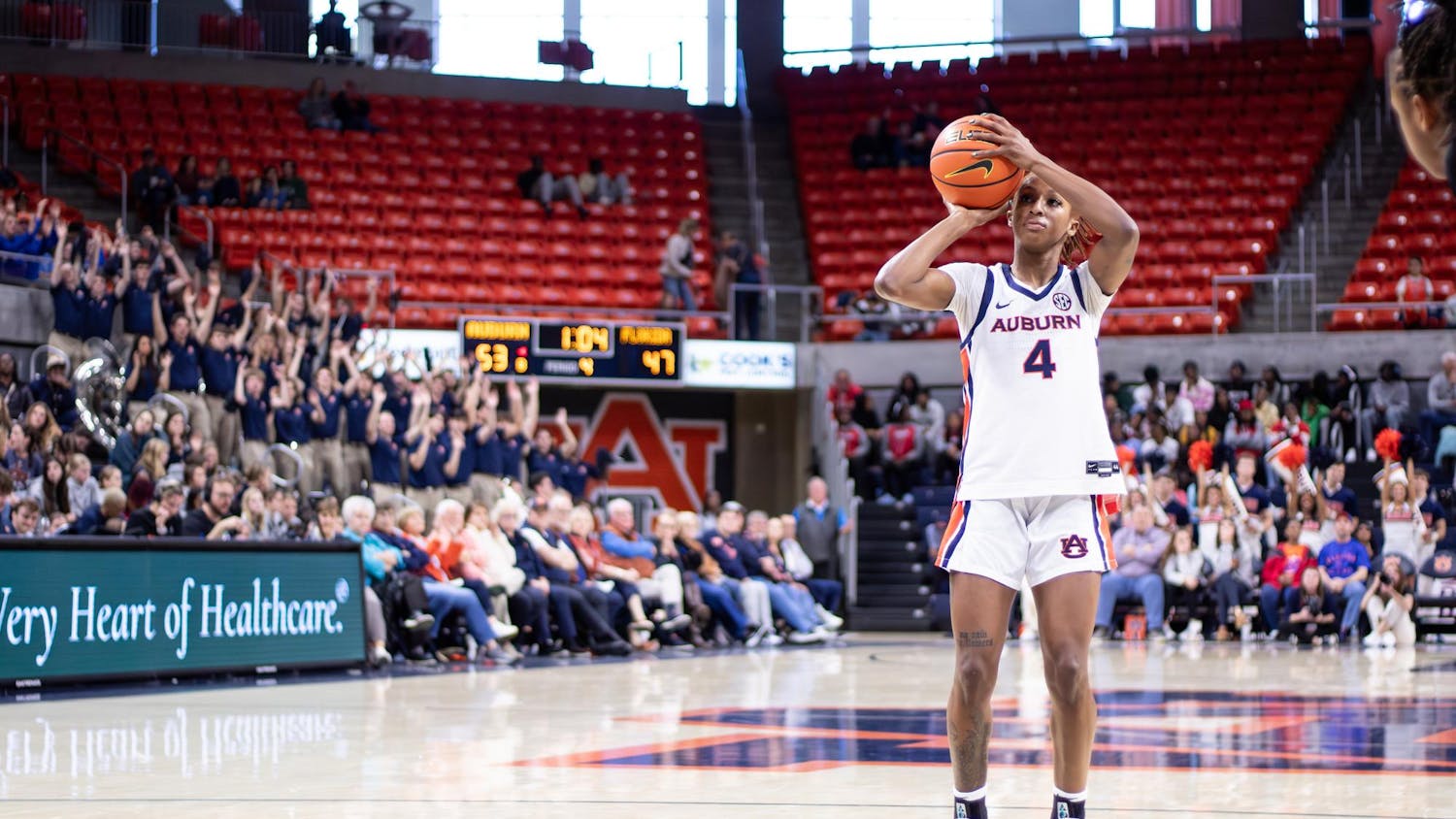Uncertainty over Auburn University's AU Alert system and channels the University disseminates information through promoted student concerns over the past few weeks. A shooting took place the evening of March 13 at Summer Brooke Apartments on Opelika Road, but no AU Alert was sent out.
Mackenzie Aycock, sophomore in supply chain management, was near the incident and questioned why no notification came afterward despite the apartment complex's less-than-a-mile distance from campus and its number of student residents. She called the University's Department of Campus Safety and Security seeking answers.
"I talked with a woman named Susan and ... I was asking, 'Why have we not been notified of this?'" Aycock said. "She [said] ... it's because it's a location issue."
Aycock was told the incident did not fall within a certain radius of University property and thus did not meet the criteria for an AU Alert to be delivered, which she said seemed unreasonable to her.
"Auburn is majority students — there's students coming from downtown, to downtown, from house to house... you're going to have students around the area anywhere in Auburn," she said. "Yeah, it's not next to the University, but we're still all impacted by it."
Subsequently, the Auburn area fell under two days of severe weather watches from the National Weather Service on March 17 and March 25. Campus Safety received criticism on its Instagram page on a post sharing information about storm shelters on campus posted before the March 17 weather event.
"No emails for students?" Instagram user hanlovik asked in the comment section. "We want to know what's going on with classes without using social media."
Another commenter directly referenced the AU Alert system.
"When are students [going to] get sent this information?" user thejordanbaileyy asked. "Isn't there a reason that we have AU Alert or is that just for show?"
An alert was sent at 2:24 p.m., three hours after the Instagram post, notifying the campus community that classes would be canceled at 3 p.m. that day. It was the first AU Alert since Aug. 24, 2020, when an armed robbery occurred near South College Street and Donahue Drive, prompting two notifications. An alert went out on Feb. 2 of this year, but it was only a test of the system.
The 'Susan' whom Aycock spoke with was Susan McCallister, director of campus safety and compliance for the department, who spoke with The Plainsman to clarify how the department approaches suspicious activity around campus and weather events.
McCallister said the department sends out two classifications of messages to the campus community: emergency notifications and timely warnings.
Emergency notifications are mainly AU Alerts, sent when a situation has occurred requiring those on campus to take action to stay safe immediately. They are only sent regarding situations on property the University owns or controls or close enough to where the situation could shift to campus. Timely warnings are meant to inform people of danger on campus or that has the potential to move to campus that is not an immediate threat to one's safety, according to McCallister.
"Those are notifications that a crime has occurred that may pose an ongoing threat, and so there's a little bit less of a threat in a possibility like an armed robbery or something like that," McCallister said. "The person has left the area but the crime occurred on the property that we own or control and the person has not been apprehended, so there could be an ongoing threat."
McCallister said she has personally written most of the AU Alerts given since the system's launch in 2007, which have included more standout messages like those about bats at the Haley Center.
"[When] we had the bats, in those cases, you're looking at a potential public health issue because they're in areas where people are frequenting," she said. "We want everybody to know to stay away from that area [and] not to touch the bats ... because they could spread disease."
Another incident involved a bottle rocket explosion, which McCallister said drew first responders, and led Campus Safety to send an alert so people would know nothing more serious had happened.
Campus Safety also issues notices and advisories to the campus community, which are two legally distinct types of notifications. Notices are classified as timely warnings under the Clery Act, a 1990 federal law mandating that higher education institutions participating in financial aid disclose information about crimes on and near their campuses.
"Those are specific types of crimes occurring on our Clery geography which gets real technical," McCallister said.
Advisories deal with weather events or criminal activities that, according to McCallister, would not classify as timely warnings under the Clery Act.
"We differentiate between those just for compliance but really people should look at them as the same — they're a notification ... that we're sending out for their safety and awareness," she said.

Campus Security Operations Center in the Campus Safety and Security Building on Jan. 18, 2019 in Auburn, Ala.
The AU Alert system is not likely to be expanded beyond the reach of campus property, McCallister said, as this is the City of Auburn and the Auburn Police Division's jurisdiction. APD posts reports on the City's website as well as through the City's eNotifier system, according to Clarence Stewart, assistant chief of police and head of APD's Auburn University precinct.
Stewart said APD and the City are working with the City of Opelika to introduce a stronger text system for Auburn-Opelika area alerts involving suspicious activity, similar to how AU Alerts function on campus. He said most text notifications at present are limited to weather notices, since texts go through the Lee County Emergency Management Agency.
For now, he encourages students or others to call 911, call APD's non-emergency line at (334) 501-3100 or call its tip line at (334) 246-1391 depending on the severity of a situation or importance of information.
McCallister said the aim of Campus Safety's social media pages is to share information without overwhelming students with AU Alerts; pages are used for lower priority notices so that students will not tune out important emails or AU Alerts later on.
"We don't want to water down our notifications and have people ignore them," McCallister said. "We've had a lot of criticism in the past, especially when we first started the AU Alert system, about over-notifying people. We tend to send emails only when we have to get something out that everybody has to know about and it's of a serious enough nature that it requires something more than social media."
Routine weather events are often given attention on social media, but the March 17 event posed enough of a threat to warrant an alert as the day continued and Campus Safety monitored the situation, said Brooke Bailey, communications and marketing specialist for the department.
"We were talking about that weather event ... on social before that day because again we want people to know this is coming, [know] the forecast we're looking at, and so yes, we communicate that via social," Bailey said. "The campus safety notices regarding the weather were sent when it started to become a bit closer to that event, when we really needed the entire campus to know [it was] becoming more serious."
Bailey conceded that notices could have been sent earlier in this specific situation.
Another concern Campus Safety has received on its social media posts focuses on the number of followers the department's pages have. However, Bailey said the department's posts are often shared by other larger University pages where they are more visible.
Both Bailey and McCallister called attention to the department's Auburn Safety app, which they said allows users to view social posts without needing to be active on social media platforms as well as submit tips that are sent to the department's email inbox. The app also includes options to contact police or call a University Night Security Shuttle.
Additionally, Bailey said users can enable a "virtual friend walk" to set a target destination and share their location with a person of their choice along the way. Should an emergency happen, the app features a one-push button that dials 911 and alerts the person receiving the user's location. The virtual friend walk may be enabled anywhere in or outside of Auburn and works with any mode of transportation, Bailey said.
McCallister encouraged anyone with feedback on how the department operates to email campussafety@auburn.edu or call (334) 844-8888.
"I feel like we are very accessible and we have met with students on their feedback and take that into consideration," Bailey said. "It is important to us to get feedback on the different notices we've sent and ways to improve that."
Do you like this story? The Plainsman doesn't accept money from tuition or student fees, and we don't charge a subscription fee. But you can donate to support The Plainsman.

Tim Nail, junior in journalism, is the campus editor for The Auburn Plainsman.





